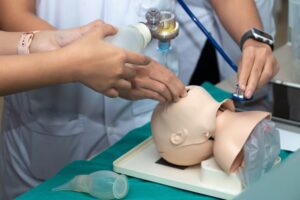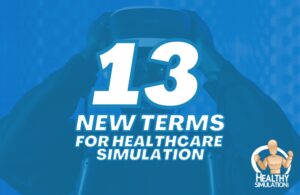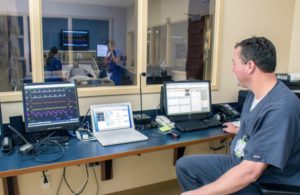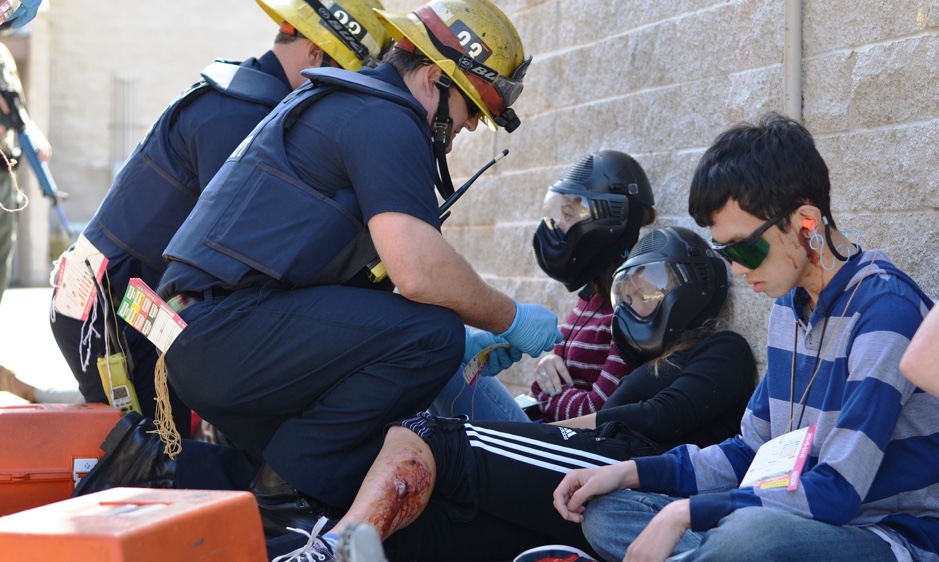Simulation Educator
A Healthcare Simulation Educator is a clinical simulation professional whose responsibility is to develop and implement clinical simulation-based education designed to enhance patient safety and quality during healthcare delivery. Also referred to as a Clinical Simulation Educator, Simulation Clinical Educator, Simulation Facilitator, and Simulation Faculty, this position is extremely important across the field of healthcare simulation. In addition to designing the plan of delivery for healthcare simulation instruction, Clinical Simulation Educators also help coordinate a number of key components of medical simulation programs delivered by either a healthcare simulation center or an institution or facility.
These components often include the educational curriculums themselves, administrative tasks, clinical session preparations, session breakdowns, and the operation of simulators across immersive simulation training sessions. Further, Simulation Educators may be tasked with working collaboratively with other facility and staff members to conduct orientations or address the founding principles of healthcare simulation education.
“Most Healthcare Simulation Educators have an extensive clinical background and some experience in healthcare education”, Dr. Kim Baily Ph.D., RN, CNE, a Sim Educator in the Los Angeles area, said. “Once they start to gain experience in teaching simulation, they can become involved in simulation program development and operation.”
Sponsored Content:
To excel in the role of a Simulation Educator, professionals should be competent in using technology, including multiple computer platforms, software applications, and audio/visual methods for recording and editing. They should possess strong communication, interpersonal, analytical, and organizational skills as well. Some employers seek Healthcare Simulation Educators who have added experience with the development of simulation scenarios, and the operation of 3-G manikins and who are able to move equipment and learning materials up to 30 lbs.
“Healthcare Educators should be able to run scenarios and debrief students using their clinical experience. In other words, they should be content experts,” Baily stressed. “They should follow scenario objectives and the facility standards as well as conduct debriefing sessions with student learning in mind.”
Healthcare Simulation Educators may work full or part-time, and hours of simulation operation vary tremendously depending on the facility. Some healthcare simulation sessions run during select periods of time, such as weekdays from 8 a.m. to 2 p.m., with setup and tear down before and after each sim day. Alternatively, some smaller institutions often do not have money for full-time Simulation Educators.
“The majority of simulation labs run on a schedule,” Dr. Baily explained. “Some, like those in hospitals, are more likely to run scenarios at off-peak times, such as nights for weekends. Others might run for 8 to 10 hours with multiple groups of learners running through sim.”
Sponsored Content:
To become a Healthcare Simulation Educator, professionals are typically expected to have earned a bachelor’s of nursing degree. However, Sim Educators often have Advanced healthcare degrees in Nursing (MSN), Medicine (MD), Education (Ph.D.), or similar. Ultimately, the requirement of an underlying academic degree will depend on the specific requirements of the intended role or employing institution. Depending on the state in which a simulation education professional is seeking employment, a license may also be required.
Another Simulation Educator credential, a Certified Healthcare Simulation Educator (CHSE) certification, may be preferred prior to or during employment. As the role requires that a professional have prior experience in a learner-centric, at least three years of clinical experience, and hands-on training, this certification helps to recognize expertise in the field. The CHSE certification is intended for individuals who perform healthcare simulation in the educator role without restriction to:
- Simulation modality
- Setting (locations where simulation takes place)
- Geographic location
- Learner population
- Function (e.g. teaching, assessment)
- Profession
“The standards for simulation education vary tremendously from one institution to the next,” Baily explained. “At one simulation lab, an educator may be expected to have studied the medical simulation on their own, while in more formal institutions certification and proof of experience may be required. Attending workshops and gaining certification in simulation builds a strong resume.”
Baily added that, while some institutions do offer master’s degrees in simulation, there is no set pathway to becoming a Simulation Educator. While this may be true, formal training and certification in healthcare simulation certainly add to a professional’s credentials.
Today, the majority of Simulation Educators work in academic departments or hospital education departments. Within these departments, and at other employing institutions and facilities, Simulation Educators can look to advance their careers by working to obtain specialized simulation degrees, such as a Master’s Degree in Medical Simulation.
“Gaining certification is looked at as a key element in being a Simulation Educator,” Dr. Baily said. “Working for a nationally accredited facility can lead to more opportunities including paid continuing education.”
They can also work to increase instructional experience (with a focus on simulation), or participate in relevant research for scholarly activities in simulation-based education. Through research projects, healthcare simulation educators may find themselves networking with others working within the space who may be able to help them leverage advanced opportunities.
“[Simulation Educators] can earn reasonable money,” Dr. Baily said. “In community colleges, Educators are considered regular faculty and paid $80,000 to $90,000 per year. In larger institutions, they can earn more, or some faculty are paid a per Diem faculty rate.”
Simulation Educator Resources
Society for Simulation in Healthcare (SSH): With over 4,000 members SSiH is the world’s largest organization dedicated to medical simulation. The nonprofit’s mission is to advance the application and promote the art, science, and practice of healthcare simulation through global engagement. SSiH seeks to reduce errors in patient care and improve clinical performance through the use of simulation.
Association for Simulated Practice in Healthcare (ASPiH): ASPiH is a UK-based non-profit membership organization formed in 2010 that is made up of professionals from the fields of healthcare, education, and patient safety. These members include researchers, learning technologists, workforce development managers, education managers, administrators, and healthcare staff and students. Members of the ASPiH tend to have a genuine interest in both new and innovative methods of learning and wish to optimize the use of available clinical simulation resources across their work.
Simulation Educator Latest News

Developing a Healthcare Simulation for the Novice Simulation Educator

Uses of Simulation Educator Needs Assessment Tool (SENAT)

Healthcare Simulation Scenarios: Why Preparation is Essential for Learners

10 Additional Medical Simulation Keywords You Need to Know About

MedAffinity EHR Software Provides Powerful Learner Experience

How to Clean Virtual Reality Headsets

Clinical Simulation Educator Job Description w/ Downloadable Template

How to Develop a Mass Casualty Incident Simulation
Sponsored Content:
















